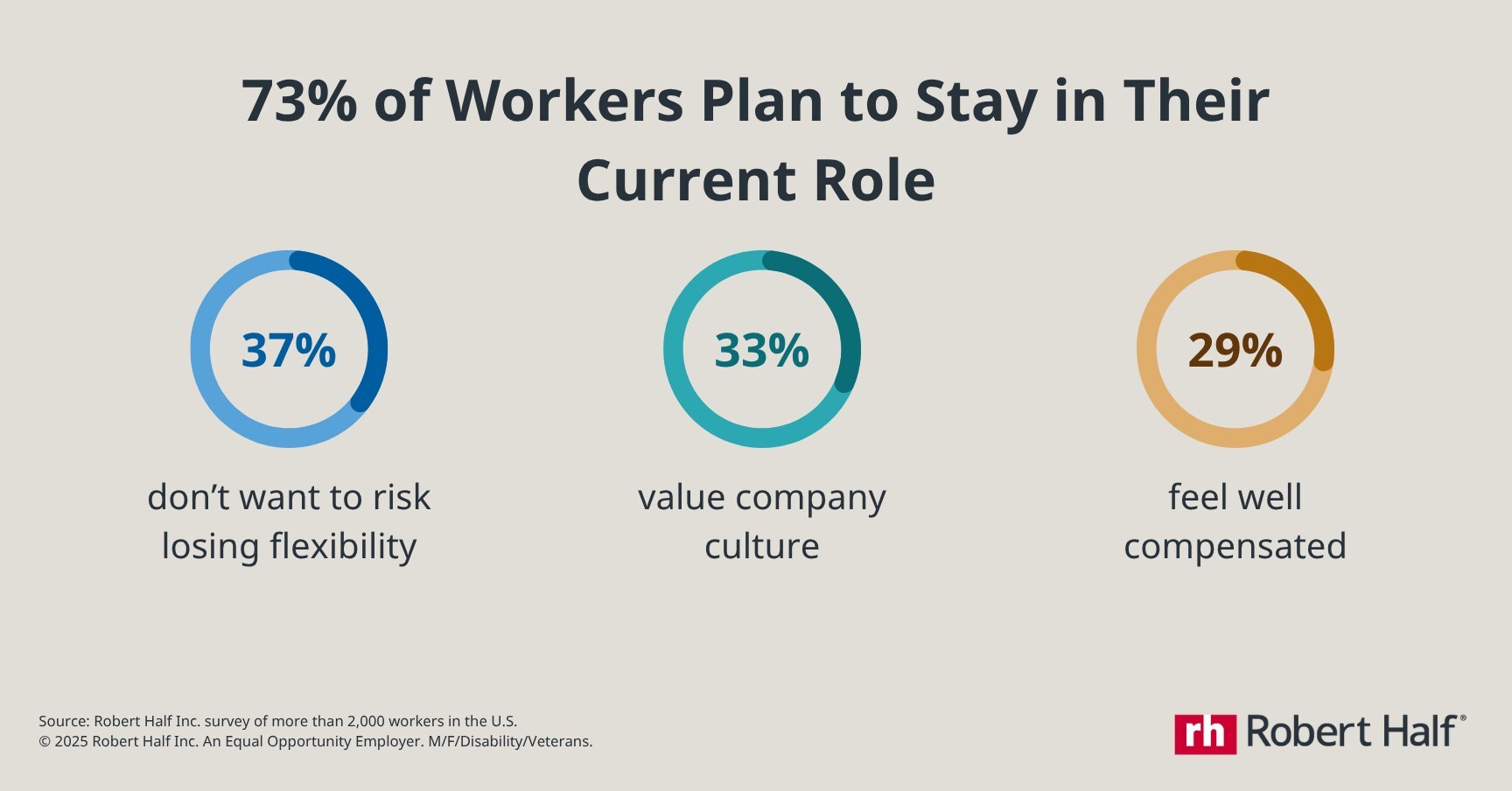New research reveals a significant trend in the modern employment landscape: a substantial majority of professionals intend to remain in their current positions throughout 2025, signaling a notable shift in workforce retention dynamics. This unexpected stability suggests a re-evaluation of career priorities among workers.
The latest findings indicate a consistent decline in proactive job searching, with a mere 27% of U.S. professionals actively seeking new opportunities. This figure is down from previous periods, underscoring a growing sense of contentment among the existing workforce, largely attributed to enhanced job satisfaction.
Key factors contributing to this trend include the high value placed on existing career flexibility, a strong sense of professional fulfillment within current roles, and the cultivation of positive workplace cultures. These elements collectively outweigh the desire for immediate change for many individuals.
Despite the overall retention trend, specific demographics show a greater propensity for career exploration, including Gen Z, Millennials, and professionals in the marketing, creative, and technology sectors. Furthermore, the motivation for seeking new job market insights has evolved, with benefits and perks now surpassing traditional motivators like higher pay and career advancement.
This evolving job market necessitates a more strategic approach from employers for talent acquisition. With fewer professionals actively looking, companies must prioritize offering competitive flexibility, clear career pathing opportunities, and fostering an exceptional work environment to attract and retain top talent.
For the segment of the workforce considering a career change, a compelling desire to transition industries is evident. This inclination is driven by aspirations for new challenges, diverse experiences, and alignment with evolving personal and professional goals, highlighting a proactive stance among this minority.
The report also sheds light on the rising appeal of contracting roles, often misunderstood as temporary stopgaps. In reality, many professionals deliberately choose contract work as a long-term career flexibility path, valuing the autonomy to select projects aligned with their interests and the agility to balance personal and professional life.
Furthermore, contracting roles offer unparalleled opportunities for skill enhancement, exposing professionals to a variety of tools and environments that accelerate learning and foster adaptability. Companies increasingly rely on contract professionals for critical projects, recognizing the efficiency and specialized expertise they provide without long-term commitments.
This comprehensive analysis from a leading talent solutions firm like Robert Half provides invaluable employment trends for both job seekers and employers, emphasizing the critical importance of understanding contemporary workforce retention strategies and evolving job market expectations in today’s dynamic professional landscape.






Leave a Reply